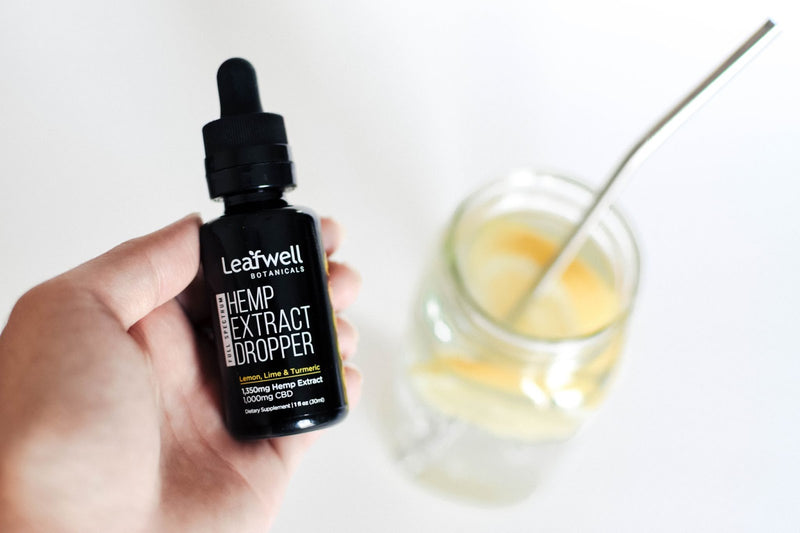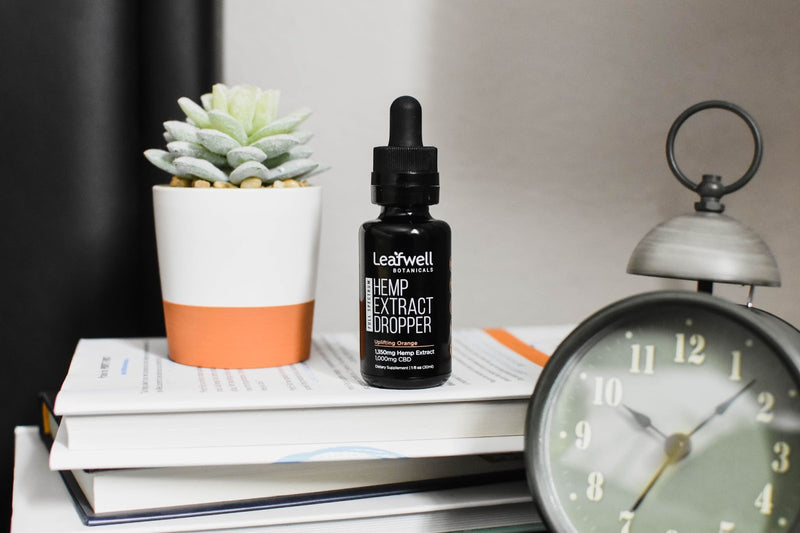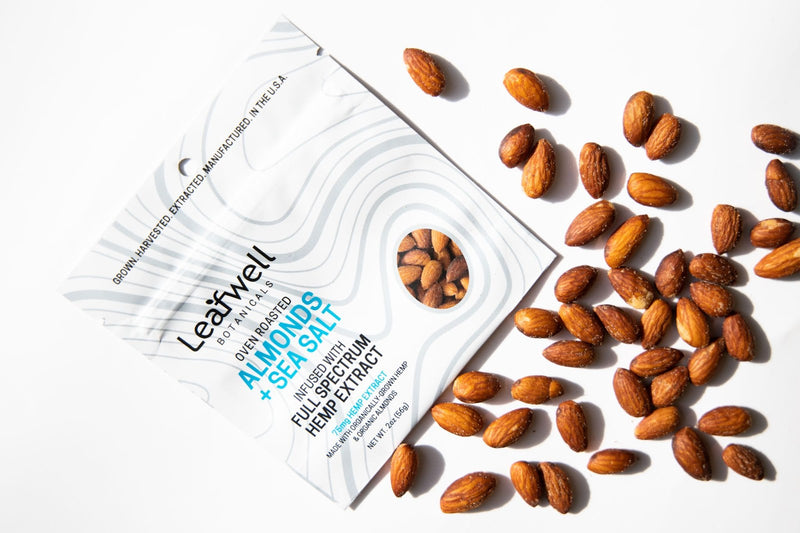Hemp Oil vs CBD Oil: Differences, Types, and Uses
If you’re just beginning your wellness journey with CBD oil, it may not be easy to figure out what you should be buying for many different reasons, which we’ll dive into more below. There are small & giant bottles of hemp oil at the store for really cheap, and then there are tiny bottles of hemp oil that are so much more expensive. What gives? This is the first and most important thing to understand if you’re intending to purchase a product with CBD in it.
Hemp is a versatile plant with many uses, and as a result, Not all hemp products are the same and there are companies that leverage the opportunity to take advantage of people. All products called CBD oil are derived from hemp flower & leaves, but not all hemp products contain CBD because some products are derived from seeds or other non-CBD-containing parts. We’re here to give you the tools to discern what’s CBD Oil and what’s Hemp Seed Oil even if the company’s are trying to deceive you in their labeling.
The Differences Between Hemp Oils
Although the term “hemp oil” is loosely thrown around, it can be incredibly misleading. Hemp oil almost exclusively refers to hemp seed oil which does not contain any cannabinoids. Hemp seed oil is a great supplement to add to your daily routine but it is not what you’re looking for if you want CBD Oil. We’ll dive more into the specifics of each one below, including a basic overview of what/how they’re made and their respective benefits.
What is Hemp Oil?
Hemp oil is the oil made from the seeds of the hemp plant which is better known as hemp seed oil (any legitimate company will label it as such). For the sake of this article we will continue to call it hemp oil but know that we are referencing hemp seed oil. It’s made the same way sesame oil, canola oil, and sunflower oils are made. They can be made naturally by cold-pressing the seeds or by treating the seeds with solvents to encourage them to release their oils. If you’re unsure how it was extracted, just ask!
Pure hemp oil can be used as a skincare, supplement, or cooking product. A large bottle is fairly inexpensive as this part of the plant is significantly less expensive to produce. It is a dark green color and has an earthy flavor to foods and is full of healthy omega fats.
Though hemp oil can serve as a supplement, it is not to be confused with CBD Oil. This is because hemp oil is made from hemp seeds like we mentioned above, which do not contain any CBD, THC, or any other cannabinoid or terpene, for that matter.
What is Hemp Extract or Hemp Tincture?
Hemp extract (typically full or broad-spectrum), hemp tincture, or also referred to as CBD oil, is made from the plant — not its seeds. They contain a much more diverse set of beneficial compounds which are found within the cannabis/hemp plant which include cannabinoids and terpenes most predominantly. If you’re looking for the wellness supplement, everyone is talking about this is most likely what you’re looking for. With that said, don’t ever hesitate to reach out and ask us if you’re not sure!.
Wait, I’m Confused About the Names!

CBD is an oil made from hemp plants. Hemp plants and marijuana plants are both cannabis plants and the only real difference between hemp plants, and marijuana plants is the amount of THC, which impacts their legality and makes one called hemp and the other marijuana. A hemp plant is any cannabis plant containing 0.3% or less THC by the plant’s dry weight. This minuscule amount of THC assures that the plant isn’t intoxicating though you should be wary of products you consume high amounts of at once where 0.30% may result in you eating 10mg+.
The fact that hemp’s < 0.30% THC is almost guaranteed to not produce an intoxicating effect is what has allowed hemp to become legalized and used in so many different applications.
CBD oil will always refer to the beneficial compounds from a hemp plant with CBD-focused genetics (CBG Oil for example, would be based on a hemp plant with CBG focused genetics). Products made from a marijuana plant, rather than a hemp plant, will be considered marijuana products regardless of the amount of THC, CBD, or any other cannabinoid they contain. This means that even a product with less than 0.30% THC can be considered marijuana if it was made with flower, extracts, terpenes, or anything from a marijuana plant.
So What is CBD Oil?
CBD oil is a term used to refer to a hemp tincture or hemp extract, which is naturally full of CBD and contains only trace amounts of THC, or in the cases of broad-spectrum and isolate products, no detectable THC at all.
If you’re confused about all the differences, look at the label of any product billed as hemp oil, hemp tincture, or hemp extract. The biggest selling point of these products is the amount of CBD and other cannabinoids it contains, as that is the star ingredient in the formula. If the product contains CBD, it may state the amount of CBD on the label, and if it does not, we recommend asking for a lab test to look at to confirm you have the right product. It will come in a small glass bottle with a dropper, and the back of the bottle will feature supplement facts with serving size information.
Unfortunately, there is no clear-cut way to differentiate the products with 100% confidence without looking at a lab test if the company selling hemp seed oil is being deceptive. With that said, look out for any reference to hemp seed oil, significantly lower price point, huge bottle vs. a smaller container, and not willing to provide any lab testing as signs for almost certainly being hemp seed oil and not CBD Oil.
The Different Types of CBD Oil

Now that we’ve established that all federally legal CBD oil that’s sold outside of dispensaries comes from hemp, it’s time to break down the different types of CBD oil produced from hemp. CBD oils are typically separated into three tiers, each one removing more compounds from the plant. Full-spectrum CBD oil contains everything the hemp plant contains, which includes multiple cannabinoids, terpenes, and some plant material (including THC). Broad-spectrum CBD oil has everything except for the THC (at least down to a non-detectable level, and CBD isolate only the CBD.
Side note: We’ll save this for another time, but CBD Oil is only one of the beneficial cannabinoid oils derived from hemp. You have CBG Oil, CBN Oil, CBC Oil, and many others being worked on that focus on the named cannabinoid as the main compound instead of CBD.
Full Spectrum CBD Oil
Full-spectrum CBD Oil is whole plant extract. It smells like hemp, it tastes like hemp (assuming no flavors are added to the formula!), and it offers the most benefits given it has the most compounds in it. More or less, it is basically the liquified version of the whole plant, which can be combined into many different products.
Full-spectrum CBD oil obviously contains the plant’s CBD, but it also contains other cannabinoids, terpenes, and flavonoids from the plant, including the wonderful THC but always less than 0.30% in finished products.
The reason why so many people want the residual THC to remain in their full-spectrum CBD oil has to do with something called the entourage effect. All of the compounds within the plant work together to deliver the benefits of the whole hemp plant to your body. Keeping them bundled together maximizes their potential in addition to getting the individual effects of all the compounds. For example, in low quantities, THC has some great benefits without the intoxicating effect.
Broad Spectrum CBD Oil
Broad-spectrum CBD oil is slightly more refined compared to full-spectrum CBD oil. It contains everything that full-spectrum CBD contains, minus the THC (at least down to non-detectable levels). Most brands produce their broad-spectrum CBD oil to eliminate all detectable levels of THC, although some brands may still have minimally detectable levels of THC present as different lab testing facilities will have different detection capabilities.
If you’re looking to avoid THC altogether, check the third-party lab report. An outside source should always analyze quality CBD products to verify that they contain (or don’t contain) what the brand states. We’ll dive into how to read a lab report in a separate article which we will link to here when we have it. Until then, please don’t hesitate to reach out and ask us to help!
CBD Isolate
CBD isolate is only CBD. Everything else is removed from the extract, which is then put into finished products. Unlike full & broad-spectrum CBD oil CBD Isolate comes in white powder form prior to being put into the tincture or mixed with any other ingredient. CBD isolate products are perfect for people who have concerns about having even the tiniest trace amount of THC in their tinctures/products. However, since CBD is only one of the things that makes hemp so great, they are losing some of the overall benefits.
All that said, if you have concerns about having literally any amount of residual THC, whether it be for personal reasons or because of a job, CBD Isolate products are where you’re going to want to be. If you’re okay with non-detectable THC and don’t need it to be all but guaranteed to be none then you should consider broad spectrum CBD oil because you’re going to get the terpenes, flavonoids, and other beneficial cannabinoids without the THC (or a very tiny tiny amount at most). Unless you have to, we recommend giving broad-spectrum CBD oil a shot and not sacrificing everything else just for THC.
CBD Oil Uses

The real question at this point would be, “What doesn’t CBD do?”. The truth is there is plenty it doesn’t help with, and don’t let anyone deceive you into thinking otherwise, but there really are so many things supplementing your life with CBD Oil can help with!
CBD oil works by interacting with your body’s endocannabinoid system. Believe it, or not your body actually produces some of its own cannabinoids (called endocannabinoids)! The cannabinoids we then get from hemp (and in minor levels from other plants/fruits like oranges and broccoli) help the body’s endocannabinoid system play its role in keeping your body balanced. There aren’t any plentiful sources of cannabinoids in the average person’s diet besides hemp.
CBD oil (and other cannabinoid-based oils) provides your body with an abundant source of cannabinoids ready for use. You don’t have to commit to an entire head of broccoli or kale every day to barely even get enough cannabinoids to support your endocannabinoid system when your body can get everything it needs from just a few drops of concentrated CBD oil. It’s a quick, easy, and convenient solution for supplementing cannabinoids.
Your endocannabinoid system supports a lot of your body’s most important functions. The endocannabinoid system plays a role in inflammation response, sleep cycle, appetite, immune system, and mood. The idea behind adequately supplying your endocannabinoid system with what it needs is simple. You’re promoting wellness naturally. You fuel up your body with what it needs, and it’s free to do its job.
CBD can help you thrive and live your best life. It may help you relax, promote balanced health, support a good night’s sleep, and support overall mental wellness. Some people use CBD after their workouts as well as a part of their active lifestyles. CBD works for pets just as well as it works for people, and some research has actually shown pet’s endocannabinoid systems are more sensitive than ours. Pet tinctures allow your dog or cat to experience the same benefits that you experience.
The Takeaway
As you can see, the terms surrounding CBD and hemp, in general, can get confusing (to say the least), especially when we start throwing the word “hemp” around. Traditional hemp oil (also known as hemp seed oil) is an amazing ingredient that can be used on your skin, taken as a supplement, or even on some occasions used to cook with but it does not contain any cannabinoids whatsoever. Hemp extracts, hemp oil extract, or CBD Oil tinctures are the kinds of oils that contain beneficial compounds like CBD. Like we’ve mentioned before, part of the problem is there is no consistent use of the terminology across companies / the industry, so do your homework on the specific brand you’re looking to buy before pulling the trigger and ultimately, lab tests are the most telling!
Leafwell Botanicals offers full-spectrum CBD oil and broad-spectrum CBD oils for people and CBD tinctures for pets. Your entire household can experience the benefits of CBD from these tinctures (and other products, too!). As for regular hemp oil, use it to make some hummus or some pesto. It has a place in your diet, but it doesn’t boast the same benefits that CBD oils do since they do not contain any cannabinoids.
Sources:
http://www.madehow.com/Volume-1/Cooking-Oil.html







